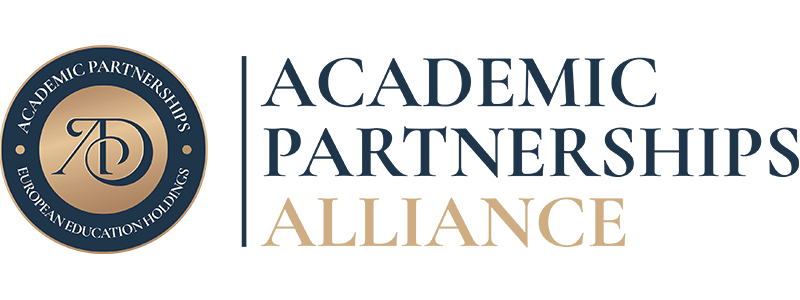Education is a critical aspect of every society, and the regulation of the education system is essential to ensure that children receive quality education in a safe environment. Across the world, federal laws and regulations govern the education sector, establishing the principles, objectives, and structure of the education system. Complying with these laws is crucial for educational institutions’ success and reputation, and maintaining compliance requires ongoing effort and attention to ensure the safety and wellbeing of students and staff.
This article provides an overview of key federal laws governing education and discusses how licensing and accreditation impact an educational institution’s prestige. It also highlights essential operating requirements for educational institutions, including health and safety, curriculum and instruction, student assessment, and financial management.
Complying with federal and state laws in education is of utmost importance, as failure to comply can result in serious consequences, such as loss of funding, legal penalties, and even closure of the institution. Educational institutions must stay informed, develop policies and procedures, train staff, and monitor compliance to ensure they meet federal and state laws’ minimum requirements. Understanding these key federal laws and regulations is crucial for success and compliance for businesses partnering with educational institutions.
Overview of Key Federal Laws Governing Education
Education is an essential component of every society, and the regulation of the education system is critical to ensure that children receive a quality education in a safe environment. Across the world, federal laws and regulations govern the education sector, establishing the principles, objectives, and structure of the education system. These laws ensure that schools meet minimum requirements and offer a curriculum that aligns with state standards. They also govern the provision of special education and support for students with disabilities. Complying with these laws is crucial for educational institutions’ success and reputation, and maintaining compliance requires ongoing effort and attention to ensure the safety and wellbeing of students and staff.
Education in the UK, France, and Switzerland is governed by their respective laws and regulations. In the UK, the Education Act 1996 sets out the framework for the provision of education and the responsibilities of schools, parents, and local authorities. France's Education Code outlines the principles and objectives of education, the structure of the education system, and the provision of special education and support for students with disabilities. Switzerland's Federal Act on Education governs the right to education, the structure of the education system, the curriculum, and the provision of special education and support. These laws ensure that children receive quality education and a safe environment for learning.
How Licensing & Accreditation Impact School’s Prestige
Licensing and accreditation are essential aspects of an educational institution’s reputation and prestige. Licensing refers to the process by which a school obtains permission from the state to operate as an educational institution, while accreditation is the process by which a school’s academic programs are evaluated and recognized by an external agency.
Licensing is important because it ensures that a school meets the minimum requirements set forth by the state to operate as an educational institution. This may include meeting specific safety and health standards, hiring qualified teachers, and offering a curriculum that aligns with state standards. Without a proper license, a school may be shut down or face severe penalties.
Accreditation, on the other hand, is a voluntary process that demonstrates a school’s commitment to providing a high-quality education that meets or exceeds established standards. Accreditation can be a significant factor for parents when choosing a school for their children, as it gives them confidence in the institution’s ability to provide a quality education. Additionally, accreditation can impact a school’s ability to receive federal financial aid and grants, as well as its ability to transfer credits to other accredited institutions.
In short, both licensing and accreditation are essential components of an educational institution’s prestige and reputation, and maintaining compliance with these requirements is crucial for its long-term success.
Complying with Federal and State Laws in Education
As an educational institution, complying with federal and state laws is of utmost importance. Failure to comply can result in serious consequences, such as loss of funding, legal penalties, and even closure of the institution. To ensure compliance with these laws, schools should consider the following steps:
1. Stay Informed:
Keep up-to-date with the latest changes in federal and state laws and regulations, as well as any local requirements that may apply to your institution. Consult with legal advisors and attend workshops and seminars to stay informed on the latest developments.
2. Develop Policies and Procedures:
Establish clear policies and procedures that align with federal, state, and local requirements. Make sure these policies are consistently enforced and regularly reviewed to ensure ongoing compliance.
3. Train Staff:
Provide ongoing training to staff members on the various laws and regulations that apply to your institution. This should include training on discrimination prevention, special education, and mandatory reporting requirements.
4. Monitor Compliance:
Regularly assess your institution’s compliance with federal, state, and local laws and regulations. This may include conducting internal audits, seeking external reviews, and analyzing data to identify potential areas of non-compliance.
Essential School Operating Requirements
In addition to complying with federal and state laws, educational institutions must also meet a variety of other operating requirements. Some of the most critical requirements include:
Health and Safety:
Schools must ensure a safe and healthy environment for students and staff. This includes meeting building and fire safety codes, maintaining clean and sanitary facilities, and implementing policies and procedures to address issues such as bullying, drug use, and emergency preparedness.
Curriculum and Instruction:
Schools must provide a curriculum that aligns with state standards and addresses the needs of all students, including those with special needs. Instruction should be delivered by qualified teachers who receive ongoing professional development and support.
Student Assessment:
Schools must regularly assess student progress and achievement using reliable and valid measures. This includes administering state-mandated tests and using the results to inform instruction and improve student outcomes.
Financial Management:
Schools must manage their finances responsibly and transparently, adhering to all applicable laws and regulations. This includes developing and maintaining a balanced budget, conducting annual audits, and ensuring that funds are spent in the best interests of students.
Conclusion: Ensuring Compliance and Success in Education
In conclusion, educational institutions must comply with a variety of federal and state laws, as well as other operating requirements, to provide quality education and a safe learning environment for students. Compliance with licensing and accreditation requirements is crucial for maintaining an institution’s reputation and prestige, while staying informed, developing policies and procedures, training staff, and monitoring compliance can help ensure compliance with federal and state laws. For businesses partnering with educational institutions, understanding these key federal laws and regulations is essential for success and compliance.
Source: European Education Holdings – Academic Partnership Alliance


